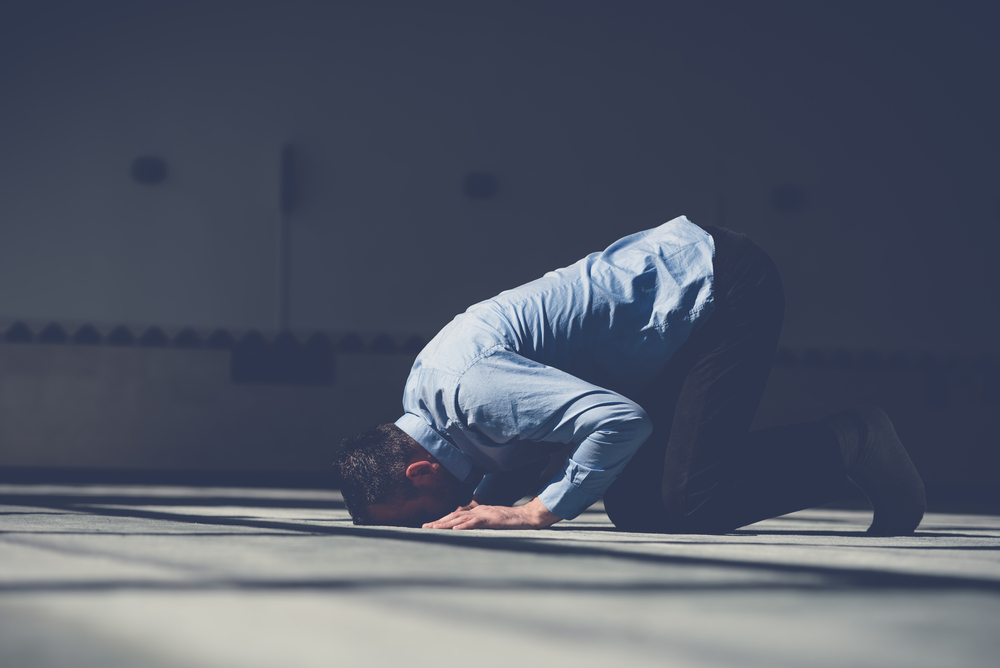Does Moving a Little during the Prayer Invalidate It?
Answered by Ustadh Sufyan Qufi
Question
From what I understand, if one moves too much to the point where it seems like they’re not praying, only then is their salah invalid…
This wouldn’t apply where someone momentarily stands before reciting surah Fatiha and touches their face. Or wipe their skin to check for blood or pus.
Also, would intentionally swallowing a tiny piece of food break salah?
Answer
In the name of Allah, Most Compassionate, Most Merciful,
I pray this finds you in the best of states.
Movement in Prayer
Yes, your prayer is valid despite moving a little because only excessive movement would invalidate the prayer. [Shurunbulali, Nur al-Idah]
From a previous answer at SeekersGuidance:
The basis is that it is prohibitively disliked (makruh tahriman) to fidget (‘abath) during the prayer.
Further, it is necessary (wajib) to remain motionless for a moment during the obligatory acts of the prayer due to the tradition (hadith) on the matter in which the Prophet (Allah bless him and give him peace) said, “Go back and pray. You have not prayed.” [Bukhari]
What is Fidgeting and What is Excessive Movement?
Fidgeting is defined as repeated, unnecessary [slight] movements during the prayer. Essentially, it is unnecessarily doing that which is not from the prayer.
If such movement becomes excessive, it would actually invalidate the prayer. Excessive movement is that by which an onlooker, seeing you performing such an action, would not deem you to be in a state of prayer. [Tahtawi, Hashiya on Maraqi al-Falah]
Allah, Most High, has said: “Success is really attained by the believers, those who humble themselves in their prayers” [Quran, 23:1-2]
Food and Prayer
Please see:
And Allah knows best.
Wassalam
[Ustadh] Sufyan Qufi
Checked and Approved by Shaykh Faraz Rabbani
Ustadh Sufyan Qufi is an advanced seeker of knowledge, originally from Algeria, who grew up in France. He began searching far and wide for answers to the fundamental questions of life and was disappointed at the answers he found. Then he connected with various traditional teachers and gradually connected with SeekersGuidance. He embarked on his journey of learning through the various teachers at SeekersGuidance, including his mentor Shaykh Faraz Rabbani. He studied numerous texts in Islamic Law, Theology, Hadith, and other areas with Shaykh Faraz Rabbani and other teachers, including Shaykh Abdurrahman al-Sha‘ar, Shaykh Ali Hani, and others. He is an active instructor at SeekersGuidance and answers questions through the SeekersGuidance Answers Service.
